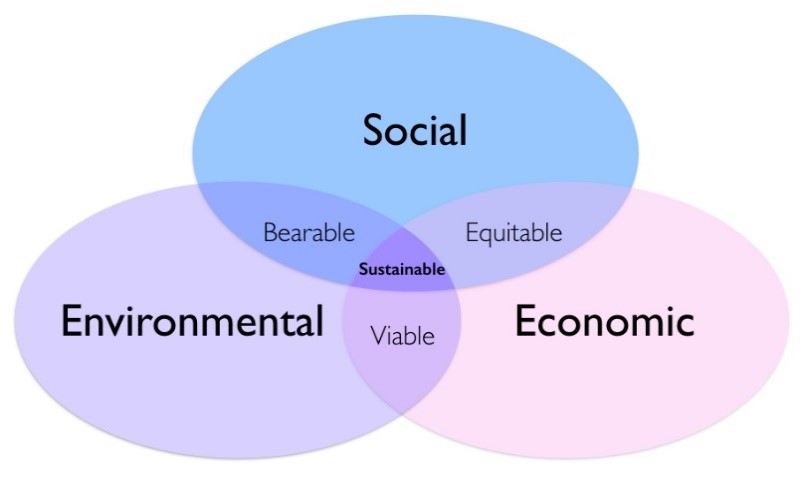PhD Programs - Responsible consumption and production
How to apply to Doctoral Studies?
Our understanding
The EURECA-PRO European University Alliance is guided by two basic statements adopted from the United Nations as follows*:
“The world’s population currently consumes more resources than ecosystems can provide.”
“For social and economic development to remain within the carrying capacity of ecosystems, fundamental changes are necessary in the way societies produce and consume.”
(*Source: Federal Department of Foreign Affairs (2021): Goal 12: Ensure sustainable consumption and production patterns, https://www.eda.admin.ch/agenda2030/en/home/agenda-2030/die-17-ziele-fuer-eine-nachhaltige-entwicklung/ziel-12-fuer-nachhaltige-konsum-und-produktionsmuster-sorgen.html.)
In consequence, we attempt to contribute to the finding, structuring and implementation of responsible and sustainable consumption and production patterns. Our interpretation of “sustainability” is closely linked to the original Brundtland Commission (1987) definition of an interwoven three-parts composition of social, economic and environmental aspects or elements, respectively (see Figure 3). the EURECA-PRO European University Alliance is guided by two basic statements adopted from the United Nations as follows*:

Given the specific expertise and research profiles of the EURECA-PRO Partner Universities, some aspects of the UN SDG 12 catalogue are in the main focus and their research and development work centres around the creation of responsible consumption and reproduction processes and the social and economic incentives to implement them. First, consumption should become more and more decoupled from increased use of natural resources and energy and its implied greenhouse gas emissions. Second, in order to enable this transition, responsible production systems should be developed within the concept of a circular economy characterised by waste prevention and reduction, the re-use and the recycling of materials.
Consumption decoupled from… | Production within a Circular economy | |||
Increased use of natural resources | greenhouse gas emissions | Increased use of natural resources | greenhouse gas emissions | Increased use of natural resources |
Our expertise
The EURECA-PRO university alliance comprises five Universities of Technology, one General University and one University of Applied Sciences. Each Partner University has its own research profile, as can be seen on this website. In essence, EURECA-PRO Doctoral Students can select the Partner University which corresponds best to their own research interests and to other preference, such as cultural background, admitted working and writing languages and location.
| Universities | |||||
| Mittweida University of Applied Sciences | University of Leon | ||||
| Technical Universities | |||||
| Montan-universität Leoben | Silesian University of Technology | Technical University of Crete | TU Bergakademie Freiberg | University of Petrosani | |
EURECA PRO alliance partners
In respect of research, an extensive survey about the research activities of the seven Partner Universities with a focus on Responsible Consumption and Production was made in the summer of 2021 under the co-ordination by Montanuniversität Leoben. This resulted in a database of several hundreds of projects gathered into seven Lighthouse Areas of Research as shown in the table below. Research projects can be accessed by Lighthouse area, Partner University and other relevant characteristics. The data base is available at https://www.eurecapro.eu/for-researchers/
Our educational activities
The EURECA-PRO European University Alliance will offer academic study programmes in Responsible Consumption and Production at all three levels: Bachelor’s, Master’s and Doctoral. This implies that, next to their doctoral research work, Doctoral students will be obliged to complete an accompanying education programme with courses common to all and individual courses tailored to their individual needs. As common courses, they will take a course on European Values and European Culture and a Course on Responsible Consumption and Production. Individual courses will include at least one course (or seminar or workshop) on scientific methods and academic paper presentation and writing and courses related to the individual doctoral research topic. The regulations of each Partner University contain detailed requirements about the composition of this individual doctoral education plan, its evaluation by lecturers and the ECTS credits.
Our work for the SDGs
To only cite e.g. a current vice rector of TU Bergakademie Freiberg one can say that roughly fifty percent of the thematic work of its faculties is devoted to the area of SDG12 or responsible consumption and production, respectively. This can be seen in plenty publications that are issued over the academic year as well as in the realisation of previous, ongoing or planned research and development projects. For example, in the first SDG12 workshop as part of the EURECA-PRO week at TU Bergakademie Freiberg in 2021, running projects in the area of recycling processes and additive manufacturing were presented. But there are also projects in the area of electrical mobility and an enormous number in the area of basic research to increase the knowledge in natural sciences, geosciences, material sciences and economics.
A first comprehensive survey and analysis of the whole scientific work at the seven EURECA-PRO partner universities by Montanuniversität Leoben shows that there is a huge number of already existing research and development projects that is already explicitly and implicitly devoted to find solutions in the area of the SDG12 targets. Thus, also behind this picture, in the course of defining the EURECA-PRO alliance research direction a first list of seven so called Lighthouse Areas of Research were defined and agreed.
EURECA PRO lighthouse missions
| Area 1 | Responsible and transparent supply chains
|
| Area 2 | Sustainable materials, green materials, materials for the future
|
| Area 3 | Process automation and industry 4.0
|
| Area 4 | Climate change & implications, climate and environmental protection
|
| Area 5 | Water circles in anthropogenic and geological systems
|
| Area 6 | Clean energy, modern energy, H2 as new wideband energy technology
|
| Area 7 | Smart cities and future mobilities
|
In addition to the upper mentioned broader defined possible research goals of decoupling and circular economy these areas could be a guide to identify individual PhD projects or scientific projects that provide rooms for several combined or connected PhD topics.


